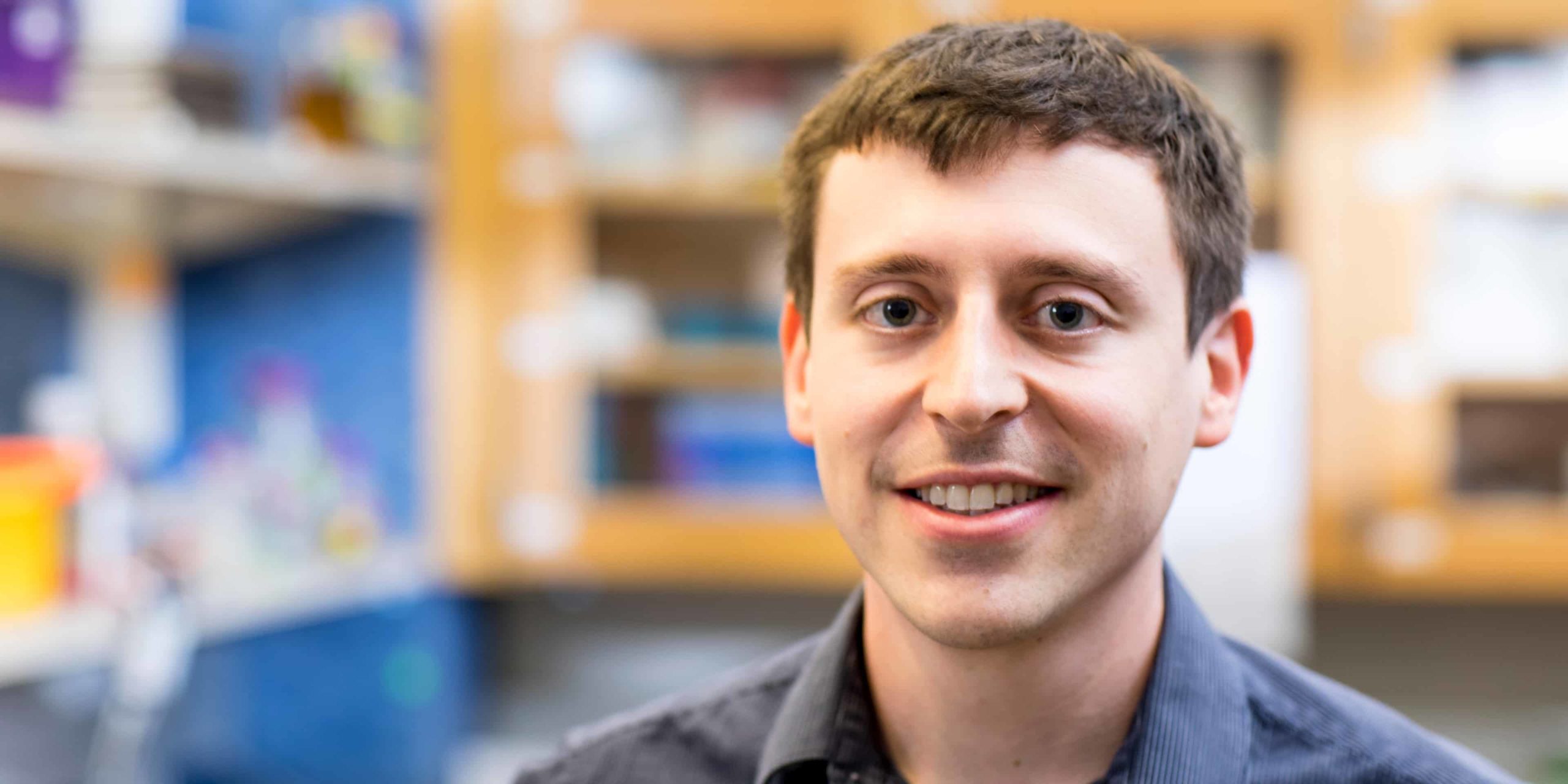David Younger is a postdoc who is commercializing the work from his Ph.D. in Bioengineering at A-Alpha Bio.
“I grew up in a medical family – my dad is a physician and my mom is a nurse, so conversations at dinner tables were always about medicine. So, I was really excited about healthcare and helping patients get over illness. But the way I saw medicine was that it was very ‘micro’, treating one patient at a time. I was more excited about organizations like the Gates Foundation and PATH, which used technology to scale up their ability to help people around the world. I thought that I could go into engineering for global health applications like that.
My first exposure to synthetic biology was my freshman year of high school. I had a teacher who was incredible, Mr. Gallagher, who one day gave a lecture on the origin of eukaryotes. I remembered learning how chloroplasts and mitochondria evolved; that it wasn’t a slow process but a phagocytosis of another cell that became symbiotic – this single moment where this one cell effectively transformed from a prokaryote into a eukaryote. I remember going away from that lecture feeling amazed. If that’s possible in the wild, what is possible if we knew how to intentionally make some of those modifications? I encountered that concept again when I took a class with Jeff Tabor as an undergrad at Rice University and learned about his work in synthetic biology. I knew that was what I wanted to do. That ultimately brought me to UW as a grad student with Eric Klavins and David Baker.
Reflecting on my experience as an undergrad going into grad school, I think now it’s easy to see my path as being very linear and thought through, but there was actually so much uncertainty along the way. My junior year of undergrad, I remember having this total crisis because I realized that I didn’t want to be in the lab forever. I felt a little bit trapped on a path towards grad school because that’s the story I had told myself. It ended up working out, but I wish I knew more about alternative career options like industry, law, or journalism in the scientific community. If I had known about those options I would have been less likely to go straight into grad school, which is something I do regret to some extent. I think having a better idea of what I wanted to get out of grad school would have been a really helpful mindset.
I think I should have reflected more on what I enjoyed from undergrad, which was that team dynamic, because I then went for many years without that. For example, I think my proudest and most meaningful moments as an undergrad were those where I was working with really great people in a team. We had a capstone with an interdisciplinary team of engineers, working with a partner from the Texas Medical Center for a new in-hospital way to decontaminate skin grafts. Those late nights spent with that group were some of my highlights as an undergrad.
Only more recently have I been able to bring back the team dynamic as the driving force for the work I do. I was really, really lucky as a grad student and the project I was doing ended up working really well. So once we realized this system worked and had implications for how pharmaceutical companies developed drugs, I had to ask myself if I wanted to file a patent and hope someone else would pick it up or commercialize it myself. However, very, very rarely will an idea manifest itself into something meaningful unless there are people behind that idea that really push it forward. So, I decided that I would be the one to do it.
It’s been a blast. It’s been so much fun and it’s totally different from being a grad student. As a student you’re often down in the weeds, whereas as a startup we are always talking to potential customers or advisors and communicating at a much higher level. A lot of people think about the skillset from grad school to be a technical one, but in my mind, it’s more about how to ask good questions, set up good experiments, and collect the data that you need to make an informed conclusion. One thing that’s been interesting and fun for me is to have conversation with advisors and VCs where people will ask ‘you have a technical background, how do you know this stuff?’, but that’s what we do as scientists and engineers: we figure out how to learn what we need to learn to overcome an insurmountable task.”



